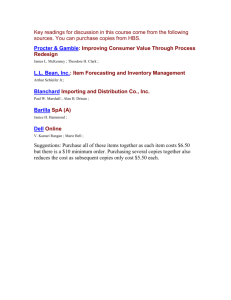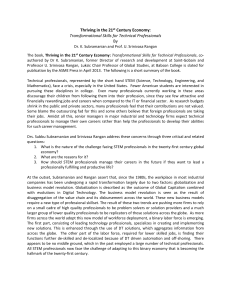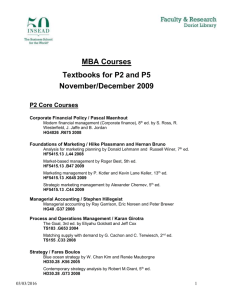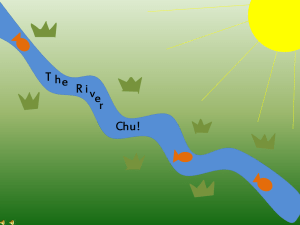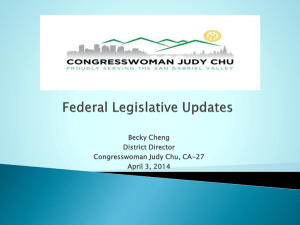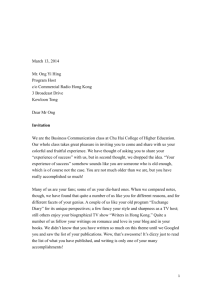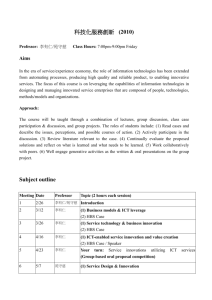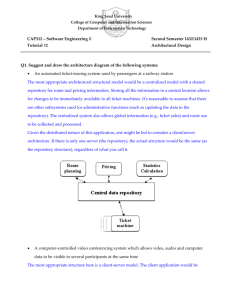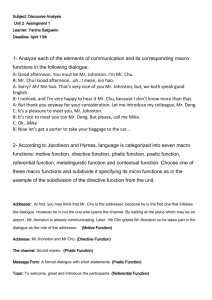Business at the Base of the Pyramid (BBOP)
advertisement
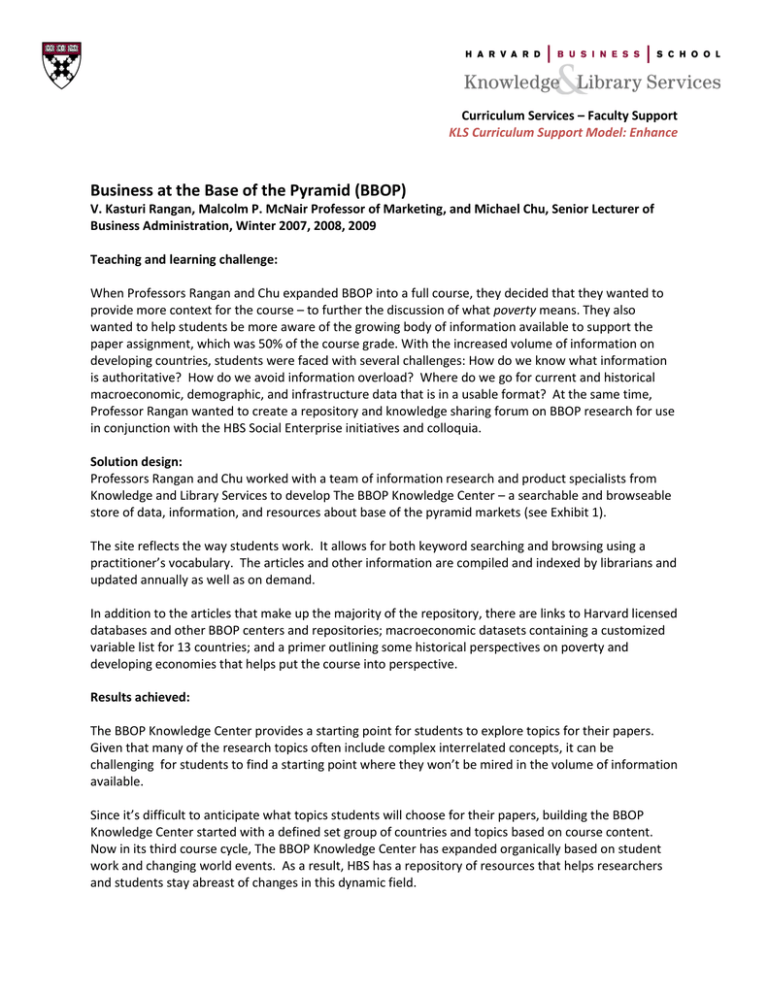
Curriculum Services – Faculty Support KLS Curriculum Support Model: Enhance Business at the Base of the Pyramid (BBOP) V. Kasturi Rangan, Malcolm P. McNair Professor of Marketing, and Michael Chu, Senior Lecturer of Business Administration, Winter 2007, 2008, 2009 Teaching and learning challenge: When Professors Rangan and Chu expanded BBOP into a full course, they decided that they wanted to provide more context for the course – to further the discussion of what poverty means. They also wanted to help students be more aware of the growing body of information available to support the paper assignment, which was 50% of the course grade. With the increased volume of information on developing countries, students were faced with several challenges: How do we know what information is authoritative? How do we avoid information overload? Where do we go for current and historical macroeconomic, demographic, and infrastructure data that is in a usable format? At the same time, Professor Rangan wanted to create a repository and knowledge sharing forum on BBOP research for use in conjunction with the HBS Social Enterprise initiatives and colloquia. Solution design: Professors Rangan and Chu worked with a team of information research and product specialists from Knowledge and Library Services to develop The BBOP Knowledge Center – a searchable and browseable store of data, information, and resources about base of the pyramid markets (see Exhibit 1). The site reflects the way students work. It allows for both keyword searching and browsing using a practitioner’s vocabulary. The articles and other information are compiled and indexed by librarians and updated annually as well as on demand. In addition to the articles that make up the majority of the repository, there are links to Harvard licensed databases and other BBOP centers and repositories; macroeconomic datasets containing a customized variable list for 13 countries; and a primer outlining some historical perspectives on poverty and developing economies that helps put the course into perspective. Results achieved: The BBOP Knowledge Center provides a starting point for students to explore topics for their papers. Given that many of the research topics often include complex interrelated concepts, it can be challenging for students to find a starting point where they won’t be mired in the volume of information available. Since it’s difficult to anticipate what topics students will choose for their papers, building the BBOP Knowledge Center started with a defined set group of countries and topics based on course content. Now in its third course cycle, The BBOP Knowledge Center has expanded organically based on student work and changing world events. As a result, HBS has a repository of resources that helps researchers and students stay abreast of changes in this dynamic field. Professor Rangan: “The BBOP Knowledge Center has made a significant contribution to the quality of student papers. Year over year we’ve seen an increase in the range of unique resources cited and an increased depth of analysis that provides a much more meaningful learning experience for the students.” Exhibit 1 The BBOP Knowledge Center October 2008
